Ash Walker: "Some people say they never put reverb on bass, but they obviously didn’t listen to a lot of dub records"
Joining the dots between King Tubby, Steve Reich and J Dilla, Ash Walker adopted an ‘anti-engineering’ approach to his latest album, Astronaut
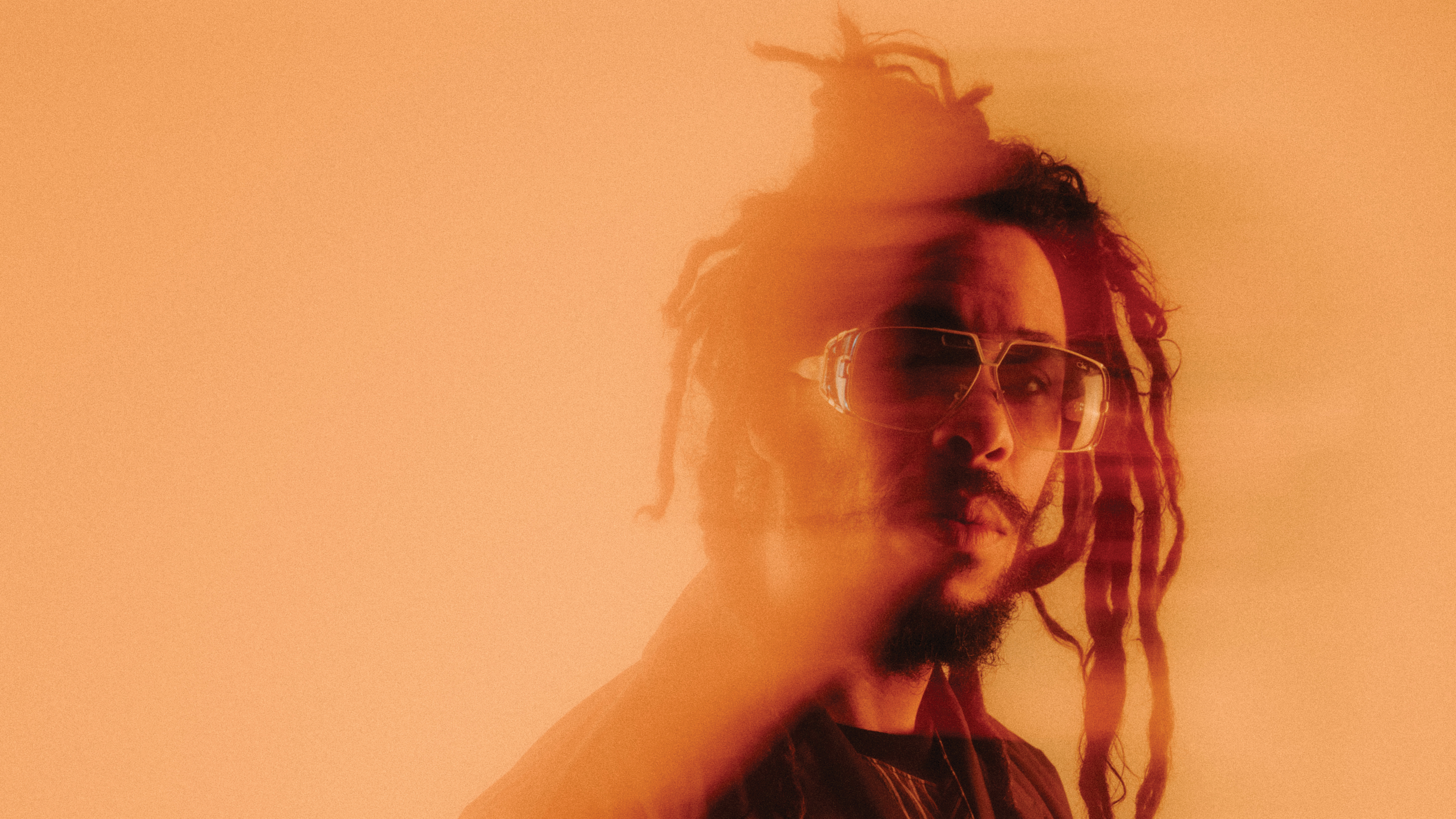
Want all the hottest music and gear news, reviews, deals, features and more, direct to your inbox? Sign up here.
You are now subscribed
Your newsletter sign-up was successful
Upon the release of his debut LP Augmented 7th in 2015, London-based musician Ash Walker gained recognition from DJs and critics alike for the album’s skilfully assembled melting pot of styles.
Further albums Echo Chamber and Aquamarine have since cemented Walker’s reputation for eclecticism, underpinned by his deep love of jazz, reggae and dub. This has led to diverse collaborations with the likes of reggae icon Lee “Scratch” Perry and Nikolaj Torp Larsen from two-tone band The Specials.
Strongly influenced by Jamaican mix engineer King Tubby, Walker has referred to his recording technique as “anti-sound engineer” – an approach that couldn’t be more evident than on his fourth album, Astronaut, where his murky, dub-inflected style has rarely sounded more authentic and immersive.
In making the album, Walker developed demos in a variety of locations with a plethora of session musicians and collaborators, including Amp Fiddler and Lamb vocalist Lou Rhodes.
In what way did Philip Glass and Steve Reich’s philosophical or compositional approaches make you think differently as a producer?
“I’m very much stuck in my own world and make music in a particular way, but listening to a vast palette of music has definitely had a subliminal influence on my sound. In the case of Steve Reich, I found that his music had a lot of cross rhythms working against each other that somehow pulled together to create something coherent.
“His work had a lot of unconscious similarities with producers like J Dilla from the perspective of things moving out of time, off the beat and to a place where people might say that something doesn’t sound right conventionally. Even though I work within a grid system, I’m fascinated by moving things away from the grid and going against the grain in a way that gives a sense of character and flavour to my music.”
Want all the hottest music and gear news, reviews, deals, features and more, direct to your inbox? Sign up here.
You’ve also mentioned Quincy Jones. Not many could emulate his genius, so is it more about setting a bar and coming as close to that as you can?
“No one in my lifetime will ever be able to emulate Quincy Jones, but you’re right in terms of trying to emulate the quality of his productions, level of output and having a hunger to finish as much quality music as possible.
“I never really want to start making something that I’m not going to finish. Whether I come back to something I’ve created one week or three years later, I’m forever digging in the vaults to consciously complete or get something to a point where I’m satisfied with it.”
From that perspective, nothing is ever wasted…
“Definitely, and that’s a massive part of how the new album Astronaut was made because it was almost finished in 2020. Going into 2021, having had a whole year to reflect on things due to the pandemic, I wasn’t completely happy with the mixes. I started to tweak them and then asked a friend of mine to offer a non-biased view on a lot of the album’s frequency spectrums.
Sometimes I’ll butt heads with the label who tell me there’s too much hiss on a track, but that’s the whole point
“Towards the end of the year there was a tune that I wasn’t happy with and wanted to drop, at which point my manager asked me to record the track Petrol Head that I’d always played towards the end of my live sets. I recorded it with the band, replaced the track I wasn’t happy with and spent most of last year undertaking a process of ‘vinyl finessing’. The album’s been pretty slow cooked and you only really know when an album’s finished when you can’t add or take anything else away from it.”
With your previous album, Aquamarine, you mentioned wanting to avoid creating something that sounds too perfect. To what extent will you take that?
“If you’ve got someone playing double bass with one mic at the top, the second at the bridge and you can hear the player breathing and his fingers moving then I feel that’s all part of the joy of the recording and don’t believe that should be sterilised.
“You can sit for weeks and months trying to iron out bits of white noise or EQing this and that but, in my opinion, removing that detracts from the vision of how I want things to sound. Sometimes I’ll butt heads with the label who tell me there’s too much hiss on a track, but that’s the whole point.”
Does that get you in trouble with mastering engineers?
“I had in-depth chats with the guy who mastered this record for me and he totally got it. If you go back to some of the Motown catalogue and study some of the setups behind how stuff was recorded in the early to mid ’60s, you’ll discover that they’d often only use one drum kit placed in the far corner of the room with a stereo mic in front of it.
“Obviously, there’s a million ways to record something, but that worked for that setting and style of music. I think a mastering engineer has to embrace the understanding of that and you’re both better served if you have an eclectic palette and have listened to stuff from the ’50s or something like ’70s Nigerian funk, where you can really feel the realness of those recordings.”
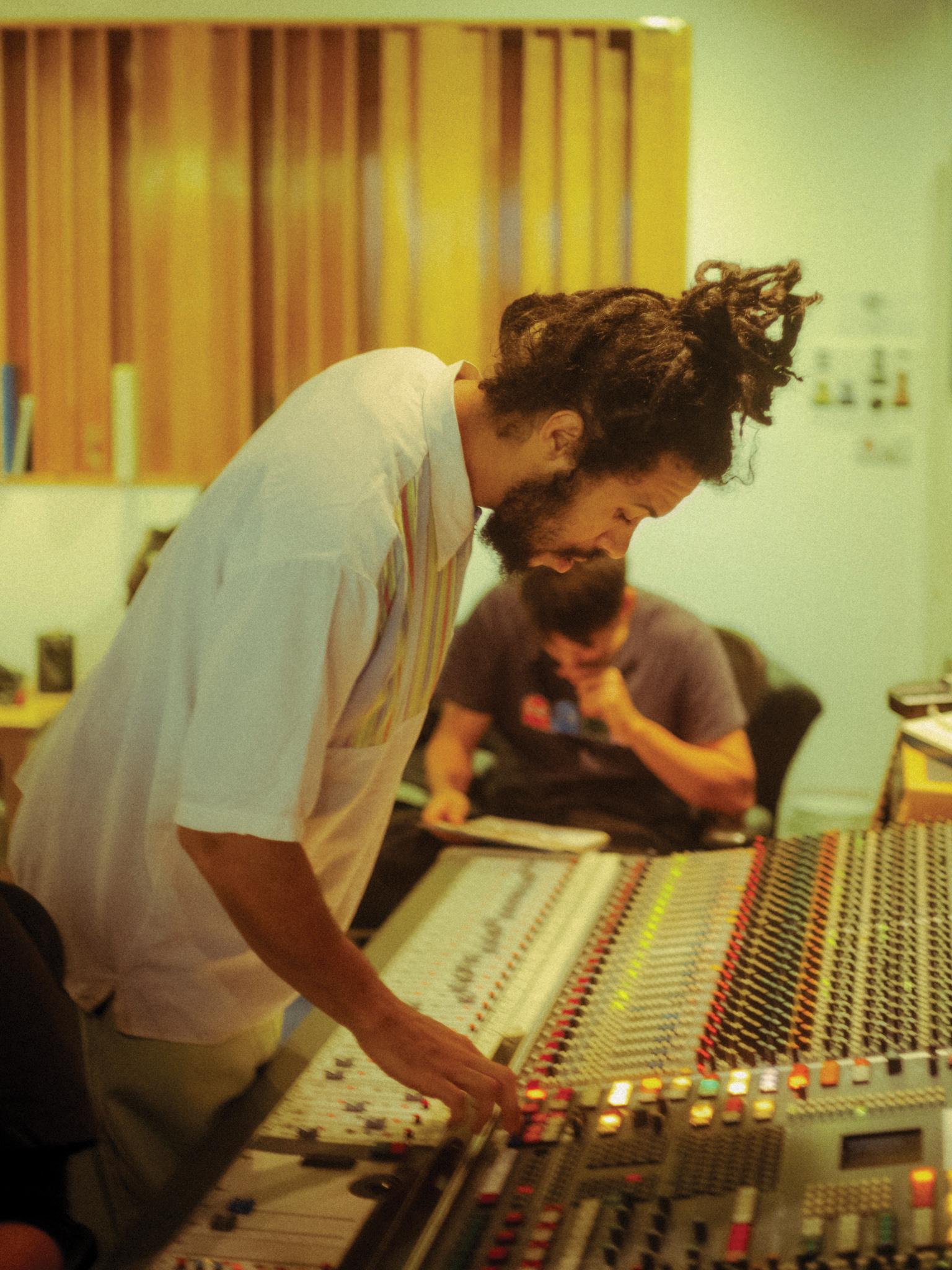
Astronaut seems different to your previous albums in that the tracks are more distinct from each other with more varied styles and tempos…
“The initial vision behind Astronaut was to take it away from the conventional feeling of an album being produced in one coherent listening space or vibe. I wanted to show my diversity and ability to create lots of different soundscapes. Each track is designed to represent an astronaut venturing from planet to planet acquiring and gathering knowledge to bring back to our universe.
“Philosophically, I guess it’s just my way of navigating through the landscape we’re all in. I wasn’t trying to go too much into the typical perception of an astronaut going into space – I just wanted to create this ethereal journey of sound, full of textures and flavours.”
Being on your fourth album, do you now find it easier to enlist the various collaborators you want to work with?
“It’s certainly been easier to reach out to people who I love and respect and get some kind of response. Although there’s still a world of people who I’d love to pluck up the courage to ask to work with, getting people involved in the project has been a humbling experience.
Each track is designed to represent an astronaut venturing from planet to planet acquiring and gathering knowledge to bring back to our universe
“In particular, joining the dots with Lou Rhodes from Lamb was really nice because she hadn’t worked on anything for quite a while. When I was just starting to get into programming she was at the height of her career, so it’s been cool to work with someone whose music I used to hear on the radio. Working with Lou was actually a turning point in the project because I knew that if I could successfully reach out to her, I could reach out to others.”
Who is on your bucket list of people to work with?
“Nile Rodgers and Quincy Jones, obviously, but also people like Sister Nancy, Herbie Hancock and Burning Spear. Coming back around to the younger generation, I’d love to work with people like Kiefer and Lauryn Hill, although I don’t think that’s on the cards anytime soon. Maybe you can join the dots for me [laughs].”
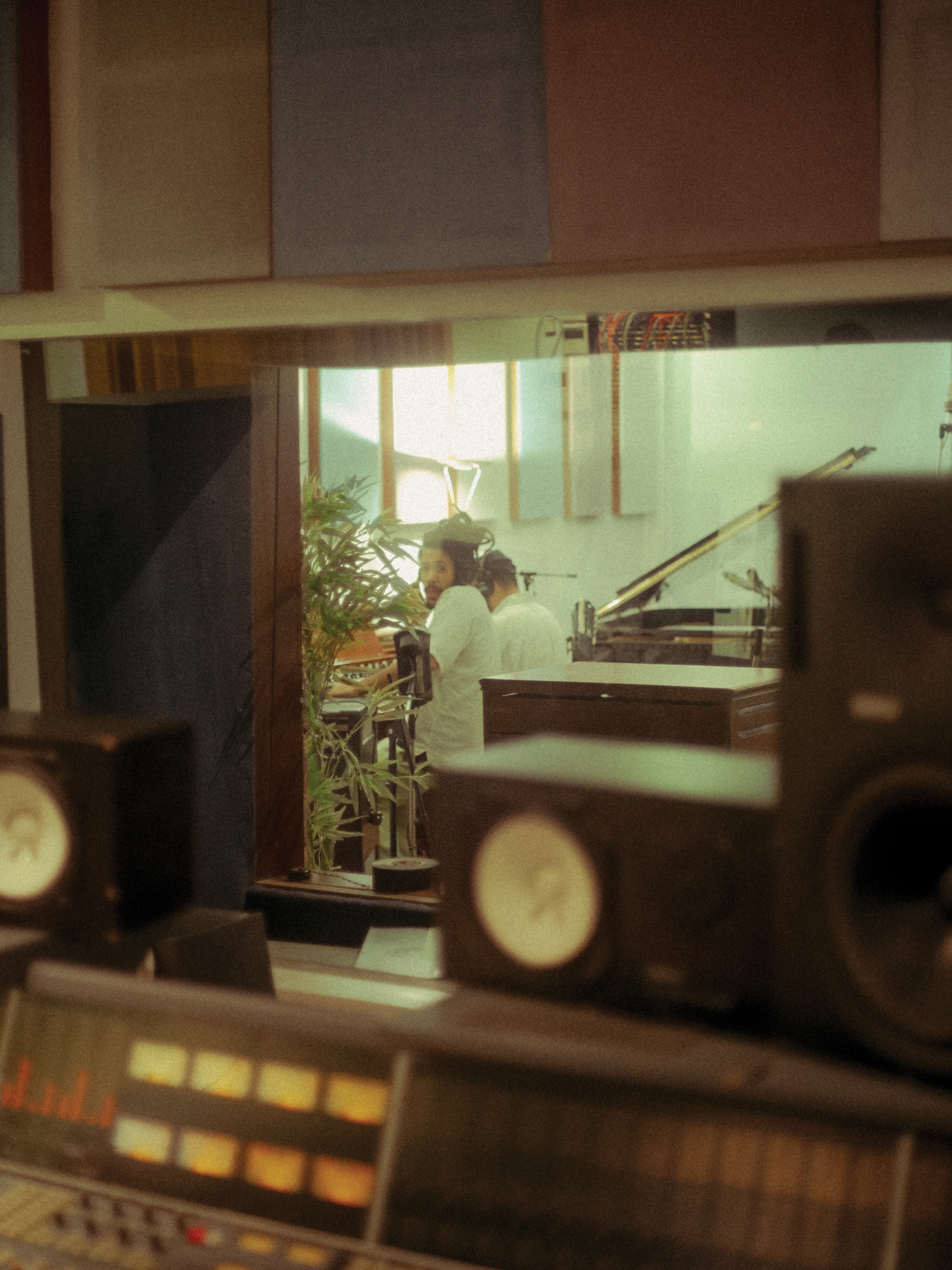
Do you have a preferred startpoint for creating a track?
“There are umpteen ways to get the mind clicking. Sometimes a vocal might inspire me or I’ll play a short, sharp chord and time-stretch it using PaulStretch to create a sound bed to start from. Other times I’ll just listen to a reference track and think, shit man, how did so and so invert those chords 15 times in two bars to get all these different chords that sound completely different?
“Without going into microtones, gamelan or Eastern scales, that stuff is often the most inspiring launching point for me, but there’s no guaranteed way to start the process.”
As a bassist, is that the first instrument you pick up?
“Either bass or keys, but I also like to start by getting a beat together or hearing a chord progression and trying to either work it out or play it myself – usually badly! I draw inspiration from many, but rather than plagiarise or copy, I’ll look to embrace my own mistakes so the end result sounds my own. Most of that’s done in my home studio, but there are a couple of other studios where I’ll turn up with my bass and a suitcase piano and throw myself in at the deep end.”
When collaborating, presumably there are times when things don’t go as you’d have hoped. In those cases, will you feel obliged to force something out of those sessions?
“Everything has its use and as I said earlier I often end up revisiting things. Sometimes shelving a session and coming back to it is what was needed because you see things in a completely different way at different points in your life depending on your mood.
There are umpteen ways to get the mind clicking. Sometimes a vocal might inspire me or I’ll play a short, sharp chord and time-stretch it using PaulStretch
“It’s funny how things work out but for the track Afronaut, I had the drums exactly how I wanted and then my drummer, Kwame Ambrose, said ‘I really wanna smash something out today’, and started mucking around. I subconsciously left the tape on record and he did this mad, slappy Dilla-inspired drum part at the end of the track. That element brought it to Amp Fiddler’s attention and inspired him to progress the track, so there’s always a benefit to creating happy accidents.”
Afronaut is a disconcerting track as it almost sounds like a mashup. Was that the feel you aimed for and how did you brief Amp Fiddler?
“It’s certainly got that flavour to it. At first, my manager called and said, ‘Joseph doesn’t like the track… he loves it’ [laughs]. Without revealing too much to him, I gave him some information on what the project was about but it seems like we have some sort of telepathy thing going on.
“He said, ‘Bro, this is what you’re going to get and you’re going to like it’, and in the end he nailed it like he’d read my mind. Initially, Rhodes keys, guitar and drums were driving the track, but when Joseph sent the vocal back, I knew I had to elaborate and sculpt Afronaut into this beast with mad, layered vocals on the hooks.”
Do you have to treat a track differently if it’s been recorded remotely and sent as stems?
“Being the interfering person that I am, I like to be in the room with everyone but Amp Fiddler was in Detroit, Denitia was in New York and Sly5thAve was in Mexico. I was also talking to Patrick Watson, the lead singer of Cinematic Orchestra, about working on a track, but he was in Canada and schedules couldn’t align. When you’re not with an artist in person, you do have questions in the back of your head, like what mic are they using, where are they standing in relation to it, the room they’re recording in and what mood they might be in on that particular day.
I’ve always been a massive fan of dub – it’s a style of music that’s been in my family for a long time
“When you receive the stems, you know you have to do something with them and that can force you out of your comfort zone, but sometimes you don’t want to be in a room with someone who’s recording a vocal and have to look them in the eye and tell them to press stop or go again. I know from experience that when you’re put on the spot like that, you can get self-conscious and would rather have your own privacy. That especially happens when you want to do your best for someone – if you’re conscious of fucking up, you’ll probably fuck up.”
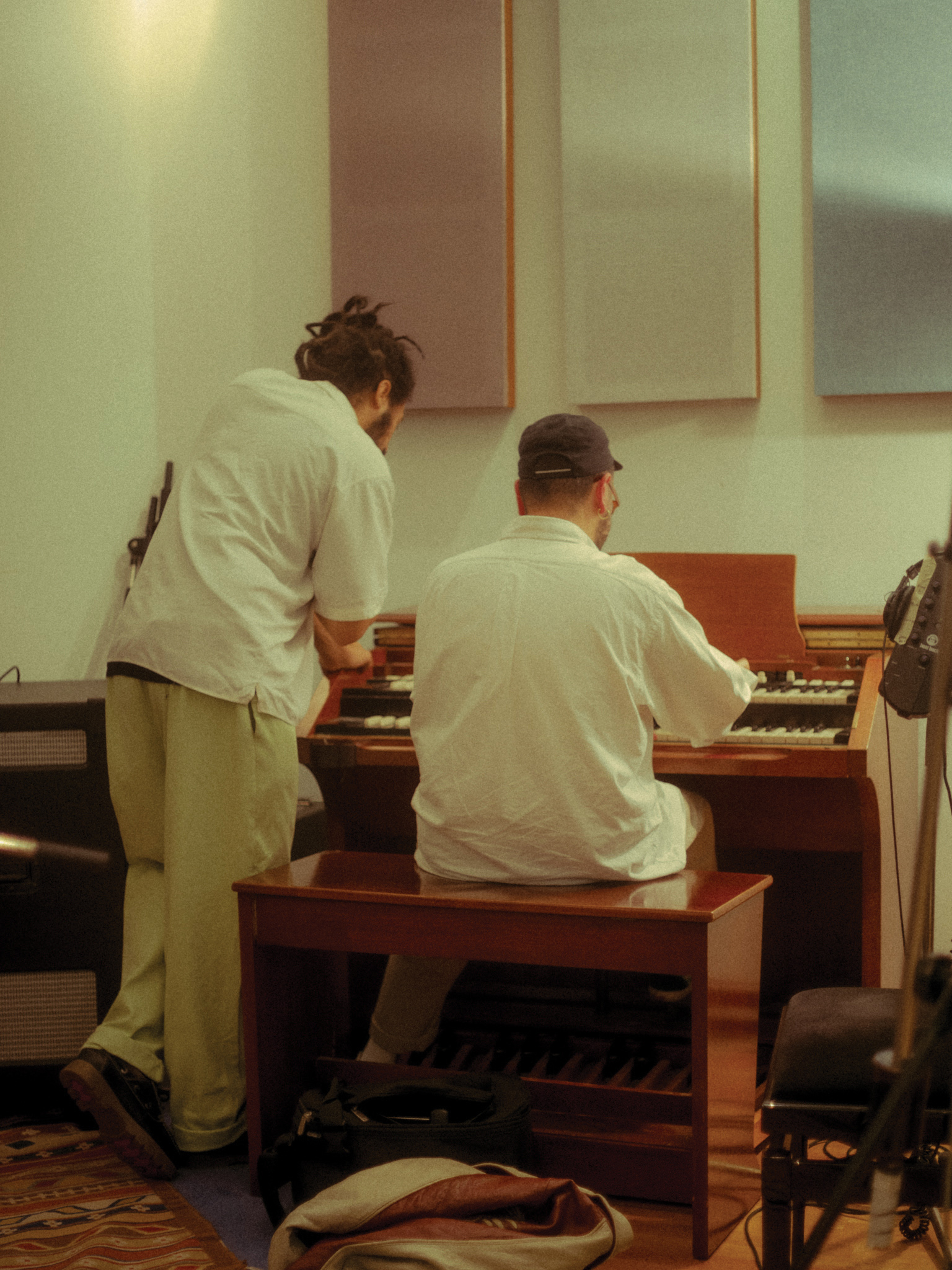
Can you tell us about some of the other collaborators on Astronaut and where you went to record with them?
“Working on the track Petrol Head was probably the most fun experience. I took my band to RAK Studios in St John’s Wood, which was great because they’ve got a whole world of stuff like a B3 Hammond, a 1973 Rhodes Mark 1 and lots of other bits and pieces of vintage gear kicking around. Its location is really unassuming, but it’s amazing how much history and gear they’ve got and how many famous people have recorded there.
“Another highlight was working at Titan Studios in Wandsworth, which is run by a friend of mine. He’s got an SSL desk with all these beautiful Neve channel strips and a Moog Voyager. I’m not a keys player, but he’s fire and would often jump in and play parts.”
Where did you go to record drums?
“My friend Max has a really humble little studio in Walthamstow with a decent kit and some beautiful mics that allowed me to get the exact sound I wanted. Once I’ve recorded drums, I’ll always overdrive and crush the shit out of them to add that little bit of extra sauce.
“I’m definitely not a drummer, but I’m a sucker for programming drums, so some of the beats on tracks like Automaton and Detroit Velvet Smooth were programmed and then I played individual hits and layered them, sped them up or slowed them down.”
As a fan of King Tubby and dub, what tricks do you use to get depth and reverberation into bass frequencies?
“I’ve always been a massive fan of dub – it’s a style of music that’s been in my family for a long time. I discovered King Tubby in my teenage years and was fascinated at how you could make a song without vocals and just have the bassline as the lead. Being a bass player, making bass the focus of the track has always fascinated me aside from dub’s influence on disco and dance music.
Once I’ve recorded drums, I’ll always overdrive and crush the shit out of them to add that little bit of extra sauce
“I got mad lucky to link up with Scientist who trained under King Tubby and in 2018 we became thick as thieves. I learned so much from chatting to him about production and engineering. I’d always be asking him what it was like to work with King Tubby, and he’d say, ‘Listen Ash, it was like going out on a boat to the middle of the sea, getting pushed in and told to swim whether you could or not’. I’d say, ‘So it was fun?’ and he’d say, ‘No, not fun. It was hard… and stressful’. Alright, cool [laughs].”
What other tips did you pick up from Scientist?
“Little things, for example, people put a mic in front of the bass amp or they’ll DI a bass and plug it into the decks, but all of these old dub records were miked in front of a bass amp with a line out too, so you got stereo bass, which gave you the option of having an extra channel beneath the mono bass.”
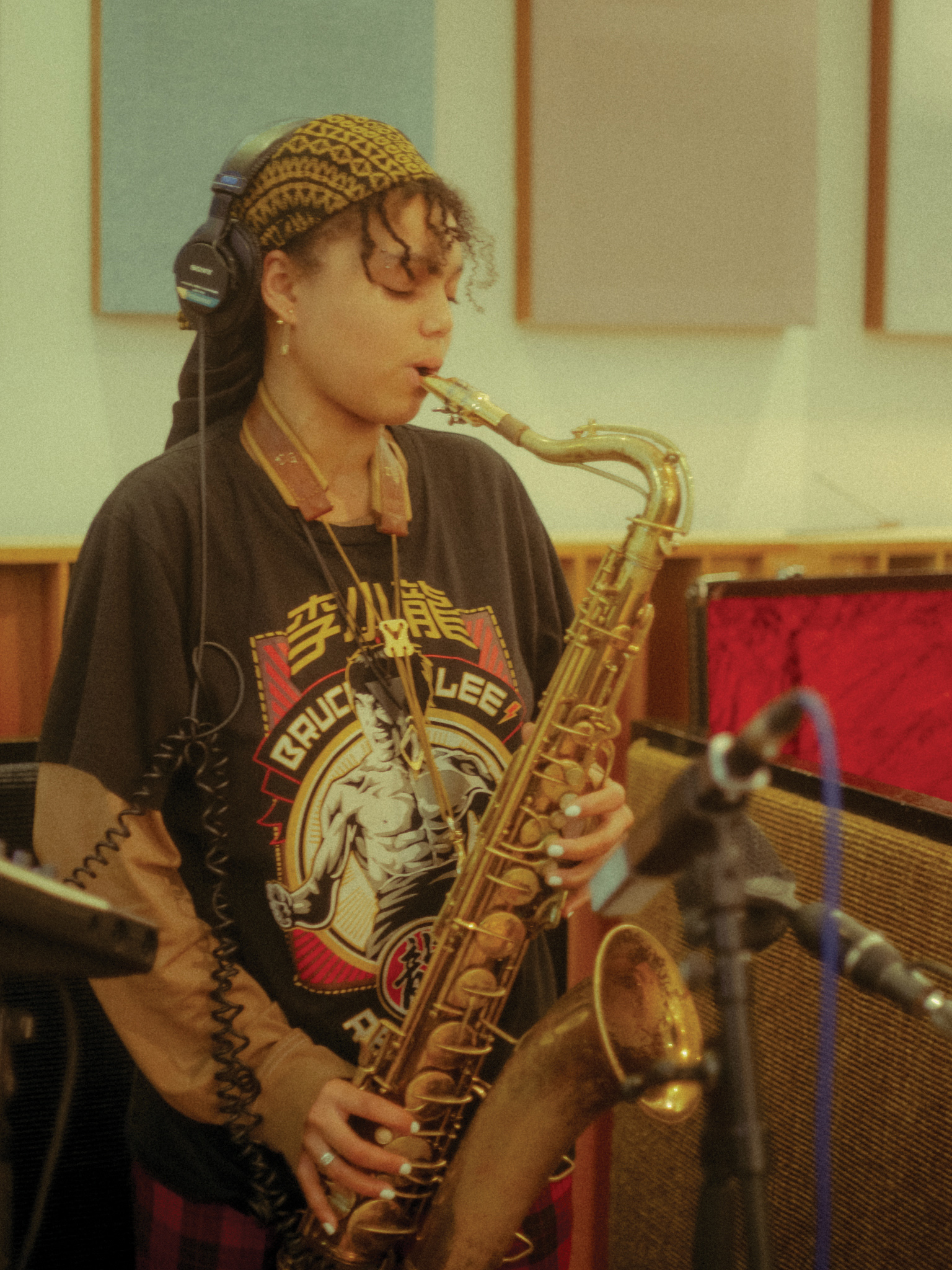
Is that something you employ on your own tracks?
“If I’m in Logic I’ll have a separate bass amp channel to give that extra punch with all the tops rolled off and sometimes I’ll direction mix it so both channels are coming out centrally. Some people say they never put reverb on bass, but they obviously didn’t listen to a lot of dub records, so I might put a touch of reverb on just to make you feel like you’re in the room with it and I don’t compress because I feel like that can constrain the frequency range.
I’m not afraid to have two or three bass channels doing different things at the same time
“Sometimes I’ll add a sub enhancer to boost the low end, use an R-Bass plugin to hone in or boost a frequency without using an EQ or just cut everything off the top end altogether, make another channel and bring a channel back in just for the high end so you can hear a bass player’s fingers moving around. It really depends on what I’m doing, but I’m not afraid to have two or three bass channels doing different things at the same time.”
What enchants you about recording to tape or using spring reverbs?
“I just like the character you can get from using old tape delays like the Space Echo and Echo Chamber. The latter’s got this old Japanese tape cartridge that’s not been changed since the early ’70s. It’s weird, but sometimes if you leave the repeat up you can hear some old stuff going round on the tape and there’s so much wow, flutter, dirt and grit on it that adds to the character.
“I’m quite free and loose about using that stuff or a spring reverb, and will leave well alone when it comes to mixing even though I’ve always battled with my label about that. They’ll say, ‘There’s too much reverb on the vocal!’. Yeah, but have you ever listened to Johnny Clarke? It sounds like he recorded it in the toilet in a basement with a microphone at the other end of the corridor [laughs].”
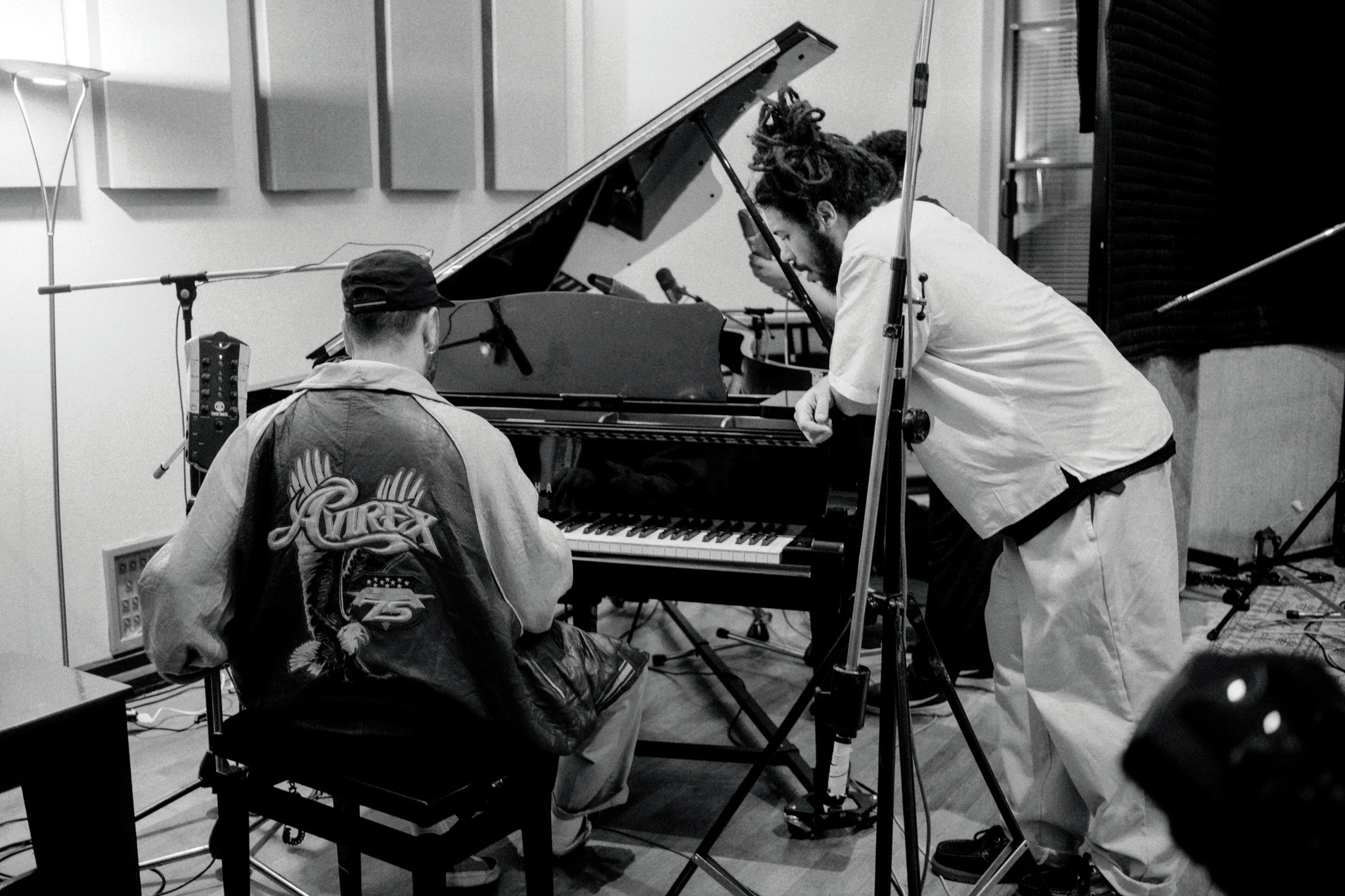
Most use those elements as an effect, but for you those principles seem to be totally integral to your sound?
“I like these elements to be brought to the forefront and for it to be made apparent that they’re a massive influence in how I shape sound. Once I’ve built other stuff around it, more of it might get delayed or I’ll add another spring reverb. The most used effects in all of my productions are spring reverbs, tape delays and EQ.
“When I use a physical delay, I’ll record it in on-the-fly because it gives the sound more of a live feel. For example, if you have a drum line playing through a track in a way that’s quite straight, I’ll record a delay channel on the hi-hats and constantly move the delay in different ways to give the beats a more diverse feel.”
What gear do you use to achieve those results?
“More often than not I’ll turn to outboard hardware because being hands-on gives the sound a more distinctive flavour. If I use internal delays, I’ll lean towards guitar pedal tape delay-type plugins because they have more character than the basic Logic tape delay, which can sound a bit nasally and digital.
You can’t really replicate the wow and flutter of an Echo Chamber. Even a RE-201 Space Echo sounds too clean compared to that bad boy
“You can’t really replicate the wow and flutter of an Echo Chamber. In certain settings, even a RE-201 Space Echo sounds too clean compared to that bad boy. I’ve also got a Great British Spring dual channel reverb, which is basically like a long poster tube with a spring inside and it’s pretty rambunctious. Things like that and plate reverbs really fascinate me.”
Will a band be realising the album on-stage?
“My band plays all the parts and I’ve got a singer in Laville who can sing almost anything I throw at him. He’s done vocals on a bunch of tracks on this album and my previous one and, funnily enough, I’m producing his next album so we’re pretty much seasoned to each other’s catalogues. Otherwise, if there’s trombone on a track, maybe we’ll replace that with saxophone, so our live setup is malleable.”
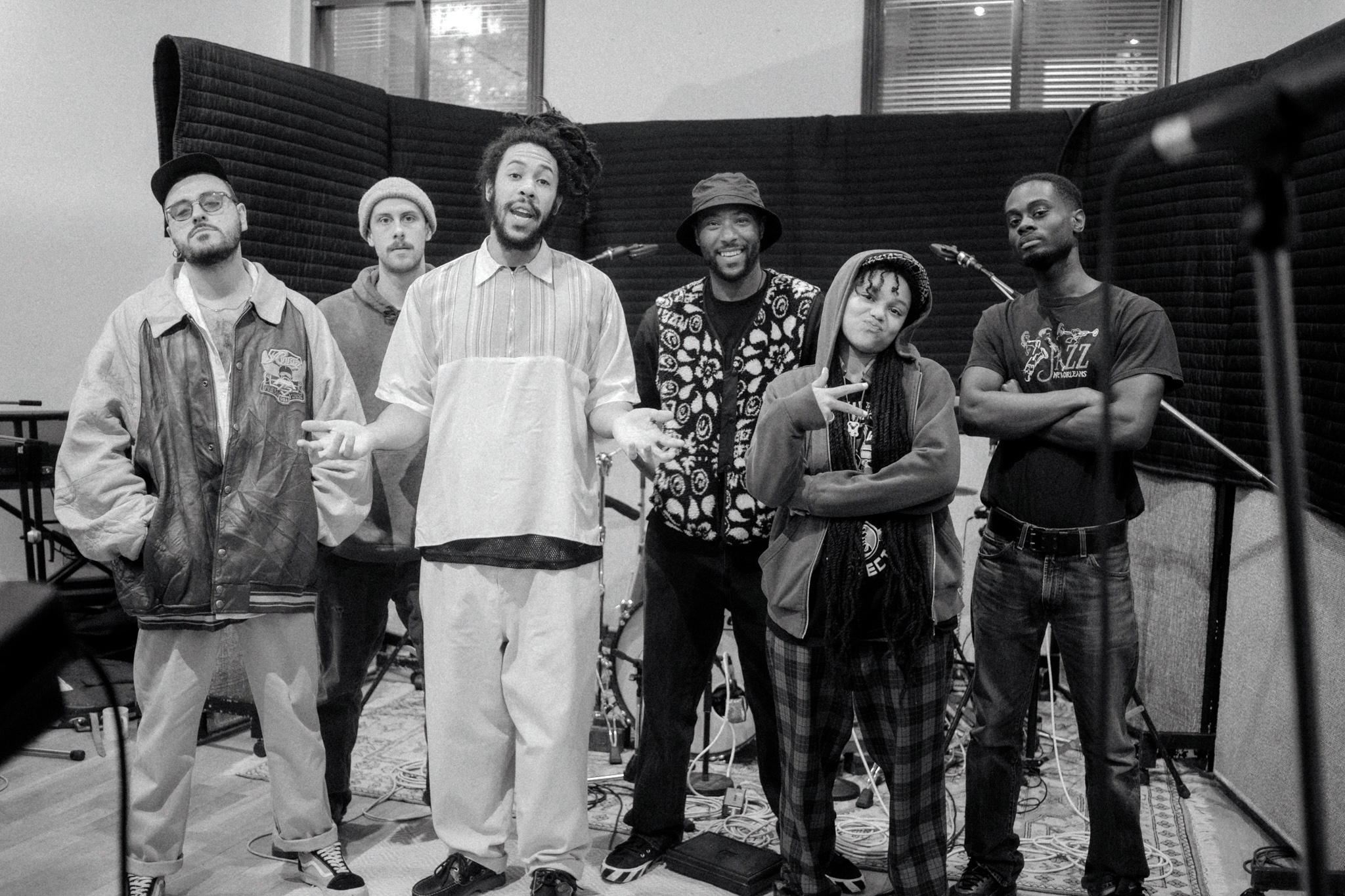
Are you playing bass live?
“I have someone else doing that. I play synths and bring an Akai MPC to throw in different samples and start building the beat live. I’ve got a mixing desk, a Space Echo and a dub siren, so when we go into the dub side I can add that stuff or bring a spring reverb on the snare and hi-hats to give everything that King Tubby flavour.
“Everything’s coming through the desk, so I can add delay as needed and do some singing and spoken word vocals. We’re doing a launch gig at the BBE record store in Hackney at the end of June, where we’ll have lots of visuals and fragrances.”
Did you say fragrances?
“I have a friend who’s one of the few black perfumers in the game and he’s done a special formula for a scent that comes with the album. It’s called Deep Space and gives off a scent of lavender and other musky scents to suit the colour palette of the album. I think it’s nice to have something tangible to show for your money.”

